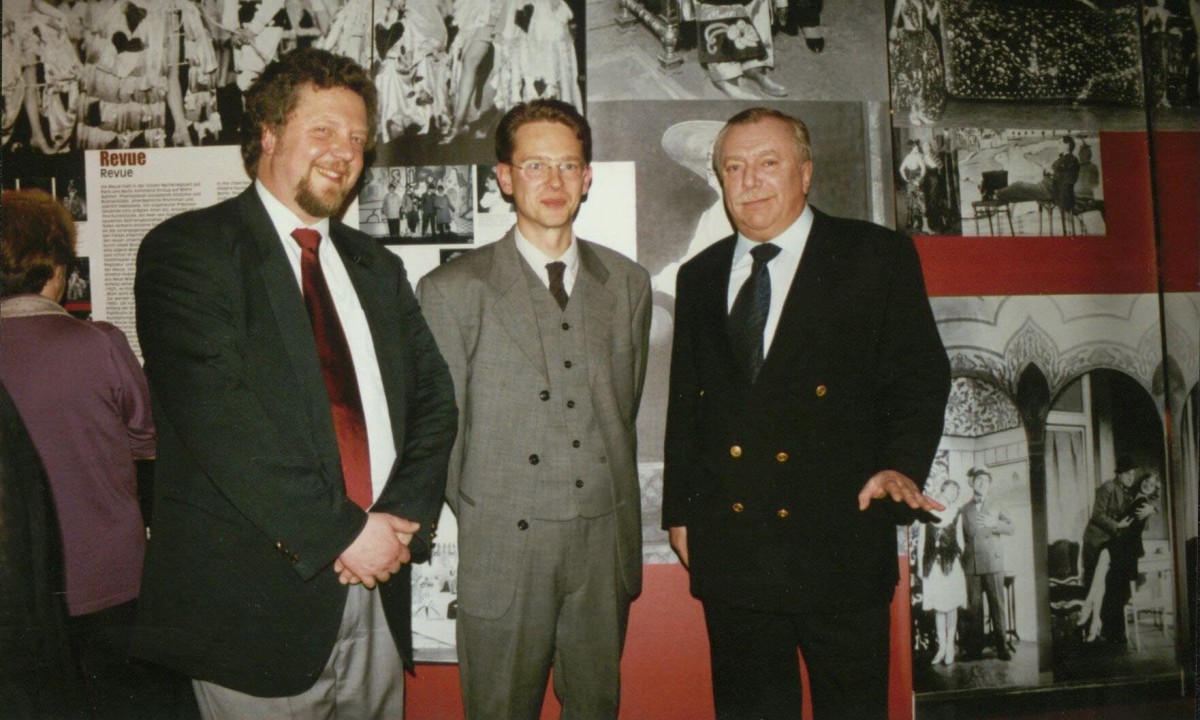18. December 2023
Latest News
Obituary Alfred Stalzer (1953 - 2023)
by Marcus G. Patka
The Jewish Museum Vienna and Wien Holding mourn the loss of their long-time associate, Dr. Alfred Stalzer, who died on December 14, 2023 at the age of seventy.
Alfred Stalzer came from a family of craftspeople in Meidling, and his father was a carpenter. He completed his studies at the Department of Political Science in 1987 with a dissertation on the integration of the Communist Party of Austria into the political system of the Second Republic. He financed his studies himself by spending years earning money in the summer at a paper mill in Sweden. Besides music, museums, and theater, he was enthusiastic about the world of media. Working in the ORF newsroom and for radio and TV, he soon established his own media agency, which cooperated with the Freud Museum, Wien Holding, the Mozart House, and the Messe Wien Exhibition and Congress Center, among others. He experienced and accompanied the Jewish Museum Vienna during its founding phase in 1993. He made significant contributions to the redesign of Vienna’s Judenplatz and the construction of Rachel Whiteread’s Holocaust memorial in 2000 at the suggestion of Simon Wiesenthal. He accompanied this public discussion process for over two years. At that time, his office had to process thousands of inquiries, including death threats from radical right-wing groups. For many years, Alfred Stalzer managed the JMW’s media relations prudently and with strategic foresight. He also published, among other things, an informative booklet on Jewish Vienna. Long-term contacts with countless journalists and politicians proved to be a great advantage for him and the JMW. His versatility led him to work as a curator himself. I was able to co-curate three exhibitions with him at the JMW: You Will Laugh! The World of Karl Farkas (2001), All Meshugge? Jewish Wit and Humor (2013), and Stars of David. The Sound of the 20th Century (2016). Afterwards, he had to slow down for health reasons and withdraw into private life. He then worked as the scholarly curator of the Austrian Museum of Freemasonry in Rosenau Castle (Lower Austria).
Several members of Alfred Stalzer’s family perished during the Nazi era. He dedicated his life to the memory of people who were likewise persecuted, expelled, and murdered. He never wanted to appear in front of a camera himself. Instead, he found the right people to do it. His role model had a big impact on many JMW staff members, and his untiring work made the JMW into what it represents in the public sphere today.
Alfred Stalzer came from a family of craftspeople in Meidling, and his father was a carpenter. He completed his studies at the Department of Political Science in 1987 with a dissertation on the integration of the Communist Party of Austria into the political system of the Second Republic. He financed his studies himself by spending years earning money in the summer at a paper mill in Sweden. Besides music, museums, and theater, he was enthusiastic about the world of media. Working in the ORF newsroom and for radio and TV, he soon established his own media agency, which cooperated with the Freud Museum, Wien Holding, the Mozart House, and the Messe Wien Exhibition and Congress Center, among others. He experienced and accompanied the Jewish Museum Vienna during its founding phase in 1993. He made significant contributions to the redesign of Vienna’s Judenplatz and the construction of Rachel Whiteread’s Holocaust memorial in 2000 at the suggestion of Simon Wiesenthal. He accompanied this public discussion process for over two years. At that time, his office had to process thousands of inquiries, including death threats from radical right-wing groups. For many years, Alfred Stalzer managed the JMW’s media relations prudently and with strategic foresight. He also published, among other things, an informative booklet on Jewish Vienna. Long-term contacts with countless journalists and politicians proved to be a great advantage for him and the JMW. His versatility led him to work as a curator himself. I was able to co-curate three exhibitions with him at the JMW: You Will Laugh! The World of Karl Farkas (2001), All Meshugge? Jewish Wit and Humor (2013), and Stars of David. The Sound of the 20th Century (2016). Afterwards, he had to slow down for health reasons and withdraw into private life. He then worked as the scholarly curator of the Austrian Museum of Freemasonry in Rosenau Castle (Lower Austria).
Several members of Alfred Stalzer’s family perished during the Nazi era. He dedicated his life to the memory of people who were likewise persecuted, expelled, and murdered. He never wanted to appear in front of a camera himself. Instead, he found the right people to do it. His role model had a big impact on many JMW staff members, and his untiring work made the JMW into what it represents in the public sphere today.

